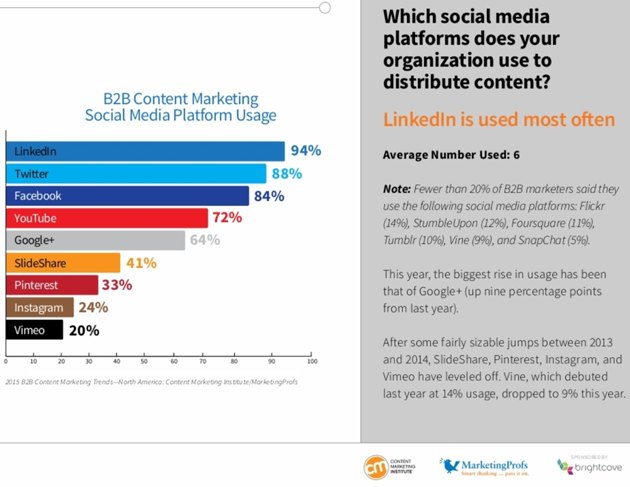Most B2B companies are not great at social media marketing. Often, they're too boring, or too product-focused, to engage social media users and develop a loyal following. As a result, they fail to achieve long-term success, which leads management and decision-makers to conclude social media is a B2C marketing channel.
Which is wrong, of course.
If you're a social media manager or marketer for a B2B company, you need to do things differently.
Creating awareness about social media and managing the expectations of your company leadership should be on your priority list, certainly, but you also need to make sure that the goals of your strategy include making a clear contribution to goals of your company.
Your B2B social media marketing strategy should therefore focus on the following steps.
1. Understand the difference between B2B and B2C social media
You need to identify the platforms that can generate sales leads for your company. This is where B2B social media is different.
B2C companies often use social media as a direct selling channel. Their strategies are focused on consumers, who generally have the authority to make purchasing decisions themselves. They don't have hierarchies to cross or approvals to seek.
But when targeting B2B clients via social media, you need to understand the standard decision-making process in your target industry. It's almost impossible to think that a B2B sales can occur because of just a few social media posts. Most of the time, the B2B purchasing process includes multiple approvals, cost analyses, and layers of decision-making.
A more practical approach should be to use social media as an engagement channel. When pitching a social media strategy to your decision-makers, your proposed ROI should be based on engagement and lead generation instead of direct sales. You need to qualify leads that your sales and marketing teams can work on.
At the same time, you need to highlight the branding part of your strategy. Social media marketing is much more than posting a few updates on Facebook and Google+ and sending out a few Tweets. It's a complete branding channel where you express your company's distinct voice, create the community effect,t and establish a brand image that is consistent with your company's values.
2. Create the right content for the right platform
A social media strategy cannot be created in isolation, especially when your objective is to increase engagement and strengthen your brand image. You need to have a strong content marketing strategy as well.
At the same time, you need to identify the right platforms where you can generate leads and engage potential customers.
At least 9 in 10 B2B marketer use LinkedIn for disseminating their content, according to MarketingProfs and Content Marketing Institute.
Moreover, some 80% of B2B social media leads are generated from LinkedIn, with more than 86% of conversions among LinkedIn-generated leads coming from LinkedIn discussion groups, according to B2B social media management platform Oktopost:
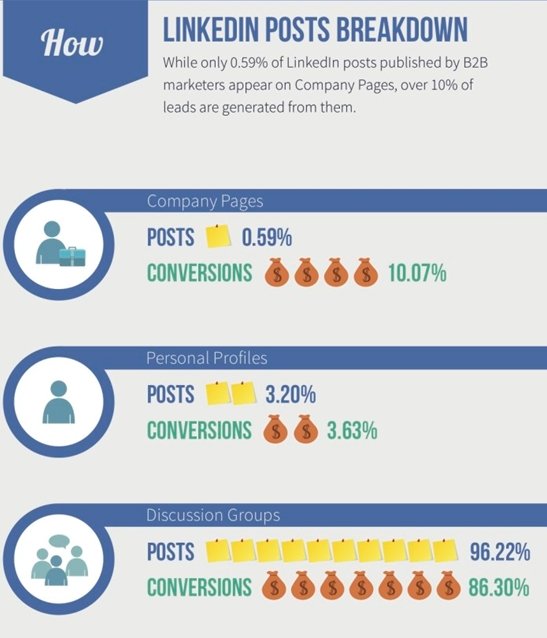
In B2C, however, Facebook and Twitter are the social media used most to directly reach consumers.
To harness the power of LinkedIn groups, and even some of the other social networks, you need to analyze the discussions of your target users. Then, create content that solves their problems and gives them new ideas. Win people over with the usefulness of your content. The value you share will contribute directly toward your branding and lead-generation efforts.
3. Stop being boring
If you're boring, you don't exist, because people will ignore you. Just because your target customers are businesses doesn't mean you need to be overly formal or boring.
The decision-makers in your target companies are humans. They're B2B users for you, but they're consumers in their personal lives. And like the average consumer, they can get bored pretty easily.
So for starters, start being personal on social media. Have a face and let real people represent you. Business-to-business selling is still about selling human to human.
Instead of hiding behind your company pages, connect with the decision-makers in your target companies on a personal level. Be conversational and use I, you, me regularly in your updates. Add humor, show empathy, follow customer moods, and enjoy events and celebrations.
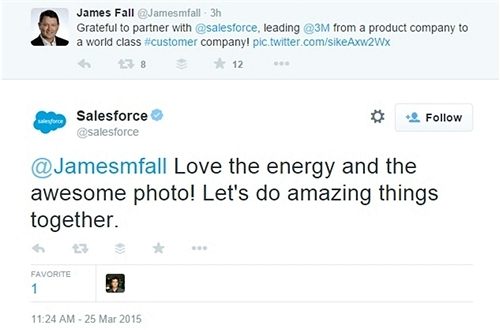
The selling process of B2B and B2C companies differs significantly. But the human element remains equally important in both models.
Salesforce, Cisco, and IBM are great examples for B2B corporations that create fun, engaging and useful social media and blog content.
4. Develop data-driven strategies
The more in-depth and comprehensive data you have about your target audience, their preferences, their engagement trends, and their conversion patterns, the more informed and less risky decisions you'll take.
As a B2B social media marketer, you need to back every move with solid data and evidence. Doing so will give credibility to your decisions, reduce the chances of failure, and help you present a clear social media ROI to your board members.
Social media monitoring tools can give you insights about your audience. For example, Hootsuite is a comprehensive social media management tool that gives you control over your accounts and provides you detailed analytics to make informed decisions.
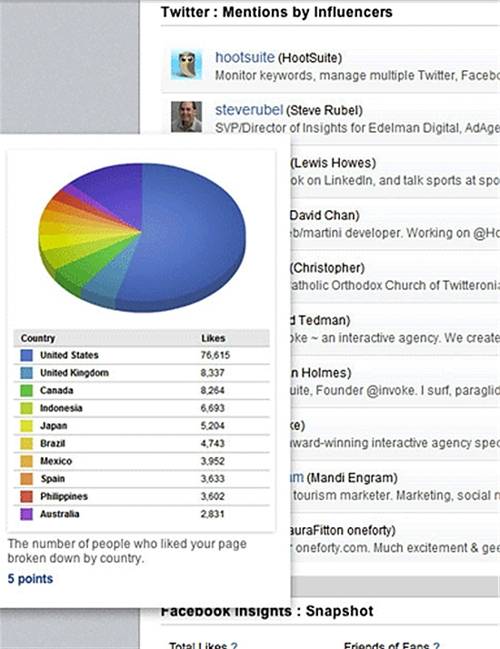
Similarly, Buffer is another social media tool worth exploring. Both it and Hootsuite are particularly useful for B2C companies. For B2B enterprise-level social media marketing, Oktopost is a reliable tool that gives you the ability to manage multiple social media accounts and users and provides performance reports and data on industry trends.
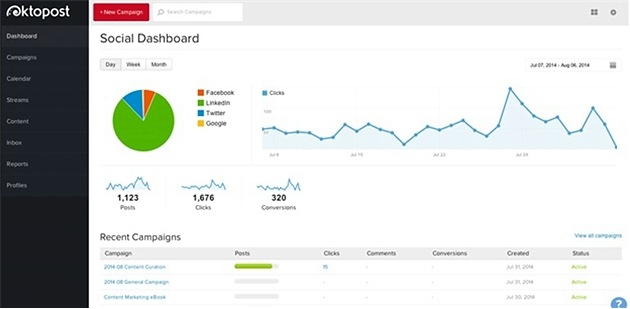
Data-backed decision-making is important for B2C companies, but for businesses focused on B2B selling, it's much more crucial. A misinformed social media campaign that targets the wrong users with the wrong content can cause severe damage to your brand image and selling prospects.
* * *
Despite some fundamental differences in the way B2B and B2C companies view social media, it has an important role to play in the sales and marketing functions of both types of business.
To excel at B2B social media marketing, you need to manage the expectations of your company's decision-makers, identify the most profitable platforms for your business, and create a social media strategy that's both engaging for your audience and attractive to management because it's linked directly to company goals and backed by solid data and industry trends.
How do you think B2B social media differs from B2C? Do you have any experiences to share? Please share your comments.
